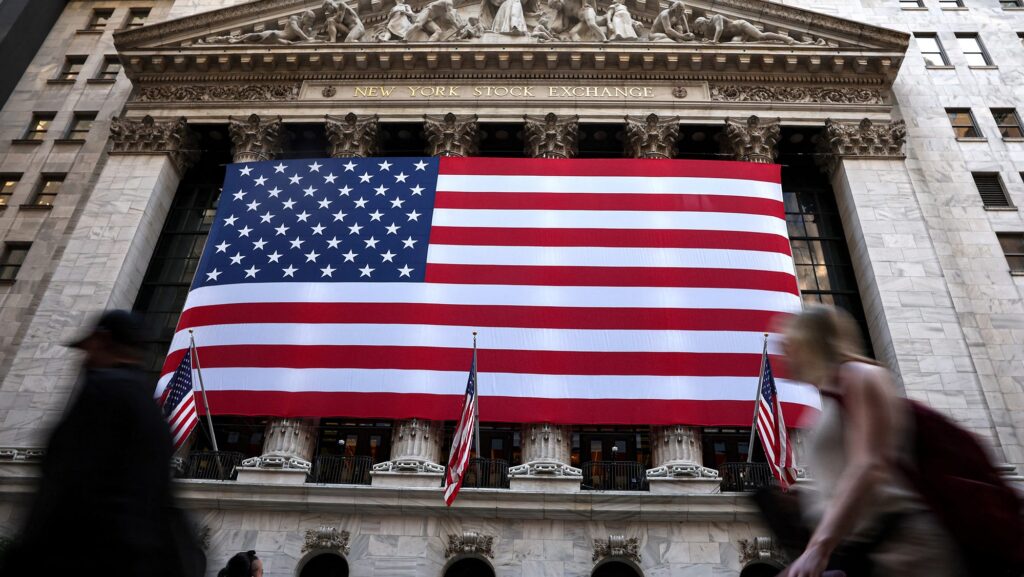You’re not alone if you’re anxious about the elections today, after months of hyperpolarized campaigning by the Democratic nominee, Vice President Kamala Harris and the Republican nominee, former President Donald Trump.
And you’d be forgiven if you’re worried about how your investment will do on Election Day, whether it’s a 401(k), IRA, mutual fund, exchange-traded fund or individual stocks.
Roughly half of Americans felt that the outcome of the elections would affect their wallets, Empower said in a recent survey.
The Nasdaq Composite rose 1.1% at opening Tuesday morning, while the S&P 500 moved up 0.9% and the Dow Jones Industrial Average moved 0.7%, Yahoo Finance reported.
Story continues below photo gallery
But Mark Hamrick, an analyst with Bankrate, cautioned that “trying to time the markets is a fool’s errand,” especially during the election.
“Investments for the purposes of retirement — that’s playing the long game,” he continued. “I’m not suggesting people bury their heads in the sand [but] I don’t think this is a tradable event. People really need to ride their positions through this.”
In 2020, it took four days for President Joe Biden to be declared the winner. Further potentially throwing the markets into disarray, Trump is expected to prematurely declare victory as soon as Tuesday evening regardless of the actual outcome.
Meanwhile, control of the U.S. Senate in 2022 was declared the Saturday after Election Day, 538 reported, while control of the House of Representatives wasn’t declared until eight days after the election.

Certain economic sectors may count themselves winners in one administration, for example fossil fuels in a Republican administration or clean energy in a Democratic administration, U.S. Bank investment analyst Rob Haworth said in an Oct. 29 note.
But Fidelity cautioned that betting on any one particular sector in the stock market could be risky.
“It is vital to remember an old investing axiom: ‘Don’t just do something; stand there’. The most important thing an investor can do is stick to their plan and avoid reacting,” said Morningstar chief investment officer Dan Kemp.
How do stock markets do during the election?
The S&P grew 65% during the Trump administration, versus 49% growth as of Nov. 1 under the Biden-Harris administration, U.S News reported.
But the S&P had lower average and median returns during presidential election years, according to financial planning firm T. Rowe Price.
Stocks rose in the days following Trump’s 2016 victory over Democrat Hillary Clinton, CNN reported, with the expectation that Trump would be able to enact much of his domestic economic agenda, including tax cuts.
But most economic sectors tended to perform better under Democratic administrations than Republican ones, according to an analysis by JP Morgan.
All Democrats since Bill Clinton have enjoyed a rising stock market. Richard Nixon and George W. Bush presided over major market downturns. Bush took office at the tail end of the dot com burst, and was in office during the Great Recession and 2008 financial crisis.
No impact in the long run
Out of all possible scenarios on election day, a sweep by either party would cause the biggest shock to the stock market, U.S. Bank said.
But U.S. Bank found no “statistically significant” relationship between a “sweep” of one party or other over Congress, and how the markets perform in the long run.
As for election day itself, financial markets “have largely been unbothered by both presidential and midterm elections,” Fidelity said, “and trying to adjust your investment strategy in the hopes of capitalizing on an anticipated post-election swing in the markets could end up backfiring on you.”
Markets, Fidelity added, tend to be moved by economic factors like corporate earnings and interest rates.
“Markets are nonpartisan,” said Fidelity Vice President of Capital Markets Strategy Anu Gagger. “So it’s very important not to base your investment strategy on the outcome of elections.”
Daniel Munoz covers business, consumer affairs, labor and the economy for NorthJersey.com and The Record.
Email: munozd@northjersey.com; Twitter:@danielmunoz100 and Facebook


